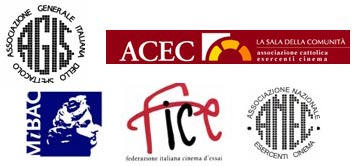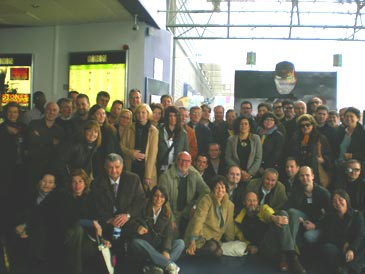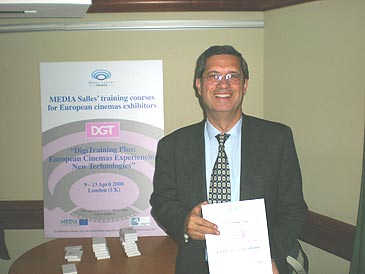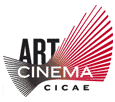
Reg. Trib. Milano n. 418 del 02.07.2007
Direttore responsabile: Elisabetta Brunella
![]()
![]()
International Edition No. 36 - year 3
9 May 2008 - Europe Day
http://europa.eu/abc/symbols/9-may/euday_en.htm
***
Dear
readers,
 it is not
by coincidence that this newsletter is reaching you today, on Europe Day.
So much time has gone by since that 9 May 1950, when the declaration by
the French Minister Schuman laid the foundations for what was to become
the European Union, and yet the building of Europe as a communal home
for an increasing number of citizens still requires a good deal of energy
in the most varied of sectors.
it is not
by coincidence that this newsletter is reaching you today, on Europe Day.
So much time has gone by since that 9 May 1950, when the declaration by
the French Minister Schuman laid the foundations for what was to become
the European Union, and yet the building of Europe as a communal home
for an increasing number of citizens still requires a good deal of energy
in the most varied of sectors.
We, too, at MEDIA Salles, thanks to the support of the MEDIA Programme
and the Italian Government, are part of this undertaking, in that very
special field of the cinema, which is simultaneously an economic activity
and an expression of culture.
Our initiatives in these few weeks, which the issue you are reading focuses
on, mean to contribute, from the special perspective of the cinema, to
reaching the objectives of the EU as it is today. On the DigiTraining
Plus course, which has just been concluded in London and which was devoted
to the new technologies for distribution and projection, the keywords
were in fact knowledge and innovation; its objective is to provide professional
players in the cinema industry, particularly exhibitors, with the tools
for operating in a context that is increasingly competitive and sensitive
to technological evolution. The event MEDIA Salles is taking part in during
the Cannes Festival, thanks to their collaboration with “Schermi
di Qualità”, places the emphasis on films as the vehicles
of cultural and economic exchange between European countries. The first
international presentation of the Italian circuit which, on the strength
of its almost 700 screens, places European films in the limelight, and
the traditional appointment on La Croisette, in which MEDIA Salles informs
journalists and representatives of the industry and institutions on the
trends in cinema-going, join forces to give visibility to Europe’s
cinemas and productions.
In the hope of meeting you in Cannes on 20 May at the Espace Italia, I hope you will enjoy your reading.
Jens Rykaer
President of MEDIA Salles
(Per leggere il testo in
italiano cliccare qui)
| THOSE WHO COMMUNICATE WIN IN DIGITAL SCREENING The way in which movie theatres
communicate their offer to the public is now widely recognized
as being a vital element for their competitive success and exhibitors
pay increasing attention to the image the public has of their
cinema. “Communication” is thus becoming one of the
key words in the world of digital cinema. Communicating digital
screening is not just about making known a technological innovation
but also about offering a whole new viewing experience. Exhibitors
are becoming increasingly aware that technology is not an end
in itself and on its own is insufficient to create a competitive
edge. What the public is told and, above all, how it is told is
therefore becoming of fundamental importance: it is not enough
to have a good product and new technology; you must know how to
communicate this in a distinct and appealing way. The Italian scenario Technological innovation
or cinema viewing experience? Communicating digital screening:
the importance of the medium and the message (Click here to read the whole article) (Per
leggere il testo in italiano cliccare qui) For the first time a comprehensive research on digitalization in the Italian cinemas The first research on the digitalization of Italian cinemas has been carried out by Laura Carniel as part of her graduation thesis on “Digital Cinema: the role of communication between technological innovation and the cinema-going experience”. Supervised by Professor Rossella Gambetti of the Catholic University of the Sacred Heart in Milan, the research followed a dual path of investigation involving both exhibitors and audiences:
|
WOMEN IN DIGITAL CINEMA
Sara Crimeni
Digima, Italy
 When
Elisabetta Brunella of MEDIA Salles asked me to write an article about
Digital Cinema, from my point of view and what my sensations were, the
first words that came to mind were transition and opening
of a new era. Working in this sector, we have the clear sensation
that, after many years of “technological stagnation”, something
of great importance is about to happen in Italian cinemas, thanks to the
evolution in the equipment, the working methods and the way we are now
considering these new movie theatres.
When
Elisabetta Brunella of MEDIA Salles asked me to write an article about
Digital Cinema, from my point of view and what my sensations were, the
first words that came to mind were transition and opening
of a new era. Working in this sector, we have the clear sensation
that, after many years of “technological stagnation”, something
of great importance is about to happen in Italian cinemas, thanks to the
evolution in the equipment, the working methods and the way we are now
considering these new movie theatres.
They are the same sensations and changes that encouraged me to take up this challenge of working with Digima, a company active in the electronic and digital cinema field since 2005, which has the objective of advancing film and theatrical shows (lyrics, theatre, concerts, dance) in digital movie cinemas or halls such as municipalities and cultural communities. Digima has created and patented a technological platform for the booking, transmission and final projection in movie houses via high-speed internet access and has made arrangements with Italian distributors to provide the digital contents.
Collaborating as sales manager with the dynamic team at Digima, my primary objective is to advertise the Digima brand, make its image known throughout Italy and expand its network of digital cinemas. There are many tools I use to accomplish this, which can be summed up as follows:
- Direct meetings with the target audience for demonstration of the Digima system
- Management of marketing and communication of the Digima brand through direct market campaigns, coordination with the press and management of the content on Digima’s portal
- Organization of events and informative meetings with exhibitors, distributors and producers.
I believe itís extremely important to hold these encounters/events with exhibitors, in which the transitional phase mentioned above can inevitably be a phase of confusion with much information provided, not all of which is correct. It is for this reason that we have decided to organize a Road Show Digima in Italy, for all of 2008 (roughly 2 stages per month) in which, with the help of experts in the sector and direct experience with exhibitors, we will spread the technical information and concepts clearly and comprehensively.
Cannes Film Festival 2008: European films and European cinemas in the forefront

In 2007-2008, over 6 million tickets were sold for Italian and European quality films in cinemas belonging to “Schermi di Qualità” (Quality Screens), the initiative by AGIS – the Italian General Association for Showbusiness – supported by the Ministry of Cultural Affairs - General Directorship for the Cinema and by ARCUS SpA.
The first presentation on the international
scene of the results of “Schermi di Qualità” will
take place at Cannes Film Festival,
Tuesday 20 May, from 2.30 pm to 4 pm
Espace Italia, Palais Stéphanie
and will be accompanied by a taste of Italian specialities.
“Schermi di Qualità”, which gives Italian spectators the chance to come into contact with quality European films, are to be found all over the country, both in large cities and in small towns, in every Region, in single- and multi-screen cinemas and multiplexes. To provide motivation for the films having a longer and more prestigious stay on the screens, the Exhibitors’ Associations, ANEC, ACEC and FICE, belonging to the AGIS, thanks to the support of the Ministry, have proposed an economic incentive for cinemas willing to commit themselves on a regular basis. 687 screens have become part of the scheme, bringing in the majority of spectators for quality European films, both those with a high box-office (Elizabeth - The Golden Age, Le grain et le mulet, Irina Palm, La Môme) and niche productions (Le ferie di Licu, Salvador Puig Antich, Les amours d'Astrée et de Céladon, Goodbye Bafana etc.).
On behalf of the Committee of Schermi
di Qualità, Paolo Protti, Vice-president of AGIS, will outline
the results. The Ministry of Cultural Affairs will be represented by
the General Directorship for the Cinema.
The presentation will allow producers and distributors of European quality
films to gain a better knowledge of the network of Italian exhibition
companies that promotes their products, with a view to planning joint
initiatives for the future also.
On this occasion MEDIA Salles will take up the traditional appointment with the international cinema community on La Croisette, by presenting the latest figures on cinema-going in Europe in 2007.
Those who are interested in participating at the event, to which an invitation is required, are requested to contact us at the following email address: schermidiqualita@mediasalles.it
To contact MEDIA Salles during the Cannes Film Festival:
cell: +39 349 2699141
+39 335 7225475
+39 349 2699348

![]()
“DigiTraining Plus
– European Cinemas Experiencing New Technologies”
45 participants from 14 different countries
took part in the “DigiTraining Plus – European Cinemas Experiencing
New Technologies” course, organized by MEDIA Salles between 9
and 13 April. The new element in 2008 was the venue: after four editions
in Belgium, this time it was the turn of the United Kingdom, the European
country with the highest number of digital screens: almost 300.
Gaining a better knowledge of the objectives and ways of public funding
that have fostered this development and becoming acquainted with significant
private initiatives were some of the course objectives. The programme
included visits to cinemas which, like the Curzon Soho and the Kino
Digital in Hawkhurst (the latter fitted exclusively with digital projectors),
are counting on the new technologies to broaden their offer to the public,
backing European films and emerging film-making in particular.
The daily press releases of the “DigiTraining Plus 2008” Course are the DGT online informer from no. 31 to no. 35 of 2008; you can reach them directly from the menu on the left side of this page.

European films opt for digital
The “DigiTraining Plus 2008” course (London, 9 – 13 April 2008) was an important opportunity not only for gaining information on new developments in technologies for digital cinema, but also for experiencing the quality of screening and the entity of the European offer of films in digital format. In this respect, the course participants were able, thanks to XDC, to watch some extracts from successful European movies during their visit to the Kino Digital in Hawkhurst, Kent. In particular, they were shown:
- Solstorm, by Leif Lindblom, Sweden
- Morgan Pålsson – Världsreporter, by Fredrik Boklund,
Sweden
- El Orfanato, by Juan Antonio Bayona, Spain
- Arn: Tempelriddaren, by Peter Flinth, Sweden
- Sous les Bombes, by Philippe Aractingi, France, Lebanon, United Kingdom,
Belgium
- Timboektoe, by Dave Schram, Netherlands
These are just some of the European
films distributed internationally in digital format too, which proves
that European cinema intends playing an active role in the digital shift.
The course participants were also able to watch the entire screening
of the film U23D at the BFI Imax in London and the documentary Shine
a Light, by Martin Scorsese, in digital format, at the Odeon Surrey
Quays.
(Per leggere il testo in italiano cliccare qui)

Enrico di Mambro, AGIS - ANEC, ha scritto sul Giornale
dello Spettacolo un articolo sulla sua partecipazione al corso "DigiTraining
Plus 2008". Per leggerlo cliccare qui
CICAE, the International Confederation of Art Cinemas, is organizing the fifth edition of its training Course “ART CINEMA = ACTION + MANAGEMENT” (Venice, 25 August – 3 September 2008), open to young European art cinema exhibitors. The objective of the course is to pass on to younger generations the necessary competences for managing a cinema devoted to quality films. Thanks to the variety of practical activities, meetings and groupwork, the Course means to be a point of reference for young exhibitors who wish to successfully undertake a hard but at the same time fascinating job, on the market of quality cinema and European films which is getting everyday more vulnerable.
 For
further information and enrolment, please log on to the CICAE website
at:
For
further information and enrolment, please log on to the CICAE website
at:
http://www.cicae.org/formation/europeenne
The deadline for enrolment is 1 June 2008.
The workshop “DIGITAL CONTENT DISTRIBUTION: Legal, Regulatory and Commercial Developments in New Media”, organised by EPI, will take place on 24 Sptember 2008. It will provide essential knowledge and the basic tools to help media business adapt to capitalise on new developments in digital distribution. The focus is not only on how traditional content can be exploited in new media but also how to fund and create content specifically for digital distribution.
Among the main topics
- Digital copyright and related rights
- Licensing of digital content
- Who is buying and selling?
- Commercial models
For further information and enrolment, please log
on to the Erich Pommer Institut website at:
http://www.epi-medieninstitut.de/

 My
Brother is an Only Child – an international and digital success
My
Brother is an Only Child – an international and digital success
After obtaining good audiences and reviews
in Italy, My Brother is an Only Child, Daniele Lucchetti’s latest
film, also came to UK screens on 4 April 2008, distributed by Revolver
Entertainment, winning immediate success with the best weekend average
per screen in its first week of programming and a box-office amounting
to £80,000.
This successful full-length feature film has also been released in digital
format and has been screened in 12 cinemas in the London area alone in
its first week on the screens. This mode of distribution is proof of growing
interest in the scheme launched by the UK Film Council which, using resources
from the National Lottery, has favoured the real shift to digital as regards
both distribution and exhibition. In this sense the United Kingdom distinguishes
itself from the rest of Europe, as has been highlighted by the course
“DigiTraining Plus 2008”, organized by MEDIA Salles in London
from 9 to 13 April. In his talk, Alex Stolz, representing the UK Film
Council, explained the project Digital Screen Network to participants
and stressed the opportunities for diversifying offer that derive from
it. In the strategy adopted by the UK Film Council, digital aims to give
greater visibility to independent productions, the so-called “speciality”
area, a category that includes foreign-language and art-house films.
Have a look at Alex Stolz’s presentation here
New MEDIA Salles offices
On 30 June 2007 MEDIA Salles relocated
its offices to the Milan headquarters of Agis, Italy’s entertainment
industry association.
Our new address is:
MEDIA Salles
c/o Agis Lombarda
Piazza Luigi di Savoia, 24
I-20124 Milano
Tel. +39 02 6739781 Direct line +39 02 67397823
Fax +39 02 6690410
E-mail: infocinema@mediasalles.it
